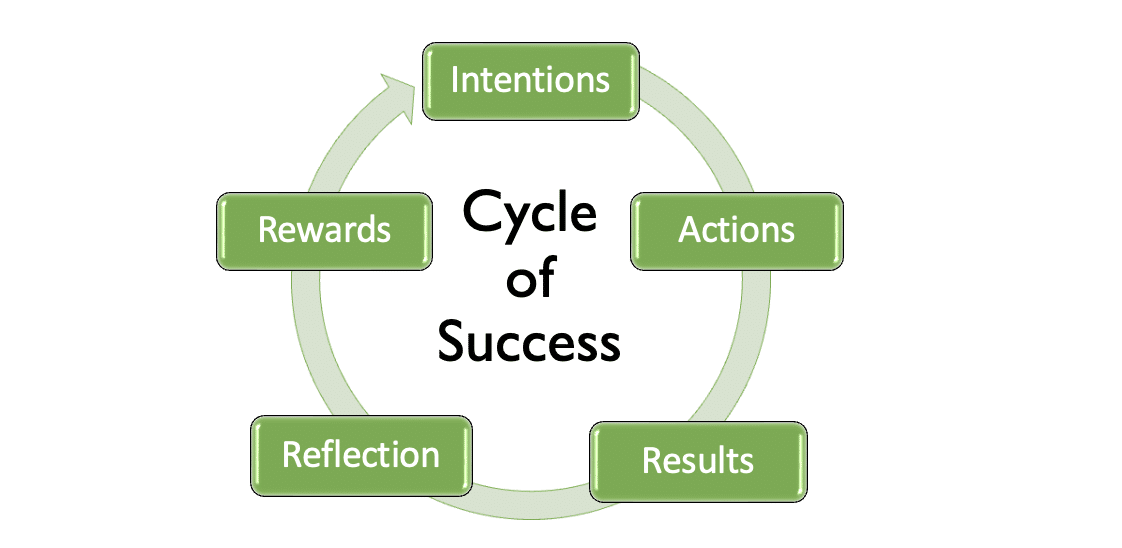The challenge of being a real estate broker today is keeping your agents selling and productive in this shifting and changing market. Many of the marketing techniques and skills that worked in a seller’s market are less effective or completely irrelevant in a balanced or buyer’s market. Thankfully, you can train your real estate agents to make this sales shift.
I should know—I’ve done it before. During the Great Recession of 2008, I was given the opportunity to lead a large brokerage firm. After a lot of trial and error, I found a proven way to guide my agents to not only survive … but to thrive in the shifting market.
Within two short years, the Keller Williams brokerage I was leading went from near bankruptcy to number 10 out of more than 700 brokerages! In this article, I will share my secrets to effectively train your real estate agents to sell and outperform the market in 2023.
Shift From Marketing to Prospecting

Reflecting on the Great Recession of 2008, I can remember previously successful agents sitting at their desks staring at their phones wondering why they stopped ringing. The previous years of a strong market had taught them that all they had to do to get the phone to ring was to advertise their listings and themselves, and the buyers would simply call.
However, once the market shifted, the buyers stopped calling—and then so did the sellers. Without rent appreciation, buyers are less motivated to trade their leases for titles. And with less equity, sellers are more focused on paying their mortgage than moving up into a larger house.
The solution I found was to shift my agents from a marketing-based business plan to a prospecting plan.
As simple as it sounds, it isn’t easy at all! This is because it requires agents to develop new sales skills, habits, and strategies.
Teach Agents How to Prospect

If you are a newer broker, you may have never experienced a buyer’s market and therefore you may not know how to lead your agents through a transition—much less a recession. The greatest challenge of guiding real estate agents during difficult times is finding the right lead generation techniques without risking too much money and wasting a lot of time.
Thinking back to the last recession, training my agents to shift from marketing to prospecting not only brought in more transactions, it also helped further develop my team. It not only saved them money, it taught them new skills and made them better agents.
Prospecting is the act of going out and finding the business, rather than waiting for the business to come and find you. It’s the lowest cost, highest return lead generation activity real estate agents can do to generate business in a down market during a recessionary period.
When the economy shifts, financial uncertainty ensues. This uncertainty leads to homeowners who begin to fall behind on payments, investors who are struggling to keep properties, and marriages that start to fall apart.
The challenge is that, in many of these very personal situations, these potential sellers don’t ask for help. Embarrassed or just private, they choose to try to navigate these difficult times on their own. Since they aren’t calling us, we need to go find them, talk to them, and help them!
Pro Tip: If you don’t already offer a tool to your agents for reaching out to homeowners who are in distress or reluctant landlords, we like that prospecting platform REDX allows customers to subscribe to for rent by owner and preforeclosure lead lists. Their auto-dialer is also one of The Close’s favorites.
Finally, here are a few articles you can use to create agent training focused on prospecting:
Focus & Organize the Team

You’ve heard it before, but this bears repeating in a changing market: Doing the same thing expecting different results is the definition of insanity. When an agent’s marketing stops working, it’s time for them to do something different. The challenge many agents are facing is trying to figure out what strategies and techniques are effective in this market.
The overwhelming decision of what to do, combined with their fear of making a mistake, leads to perfection paralysis. They can’t afford to make a mistake (not in this market), so they just don’t make a decision or make any changes at all. They are completely stuck in insanity!
To successfully guide agents through a downturn, you must get all of them focused and moving together in the same direction. Your new direction will include new training, skill development, and habit-building techniques that will produce quicker results.
The combined efforts, accountability, and visibility will provide group results and validate that the new training and lead generation techniques are working. This will motivate and inspire the rest of the team to continue their efforts. The new focus and excitement can be infectious and ultimately produce great habits and outstanding results.
Track Their Progress & Hold Them Accountable

Ask most agents why they got into real estate instead of pursuing a traditional 9-to-5 career, and they will likely tell you that they wanted the freedom, flexibility, and unlimited income that a career in real estate provides.
While real estate does offer all of these things, it doesn’t provide them simultaneously. An agent might have freedom and flexibility, but then that dream of unlimited income isn’t going to come true. Those of us who have experienced the excitement of making over $100,000 month over month in real estate also know that it didn’t come from freedom or flexibility. It came from a lot of discipline and accountability!
To successfully transition your brokerage to a prospecting-based culture, you will need to add tracking and accountability to your weekly activities. Reasonably, this will not be accepted by all your agents. Especially the highly independent types.
Start with a small group of newer agents if you must. Once a week you will guide them to set individual prospecting goals. We call these key performance indicators, or KPIs.
KPIs include the number of actions (calls, texts, door-knocks, messages) they take, conversations they have, appointments they set, and appointments they go on. Each agent should set their own individual goal on what they intend to achieve for the week.
At the end of the week, they will report on their KPIs. With a little guidance and accountability, you will see conversations turning into appointments and appointments into agreements.
Pro Tip: Don’t forget to consider the current policies you have in place and how they might need to change in response to this pivot. My Brokerage Process and Procedures Plan template is a helpful tool in this process. Download it for free below!
The Cycle of Success

If you wish to turn your office into a profitable prospecting machine, then your #1 job at the end of each week is to celebrate the successes of each agent. No matter how small. Many agents will set aspirational goals and will be embarrassed or ashamed to report their numbers. If they feel defeated, they won’t continue to participate and they may eventually quit altogether. That’s why you need to praise even the smallest effort from each agent.
When you consistently set goals and acknowledge the small wins, you will find that it empowers agents to prospect more. And the more they prospect, the better they get as their skills improve. Additionally, the prospecting culture you created will inspire other agents to participate. Your prospecting group will grow as it attracts other agents who want to be part of something exciting and productive. I call this the Cycle of Success!
Add & Recruit the Right Agents
It may seem strange to expand during a recession. But the health of a brokerage can be directly attributed to the number of real estate professionals (or agent count) in the brokerage. Therefore, you should onboard as many agents to your brokerage as you can during a market downturn.
When you’re effectively training and leading your team from an individual agent marketing culture to a group accountability prospecting culture, you will automatically attract agents from other brokerages who are looking for a company that is better suited for the current market.
Your instinct may be to invite them all to participate in your prospecting culture. While newcomers can bring enthusiasm to a group, they can also bring fear and criticism. So before you add outside members to your prospecting team, be sure they understand and agree to the rules. Here are five rules of my prospecting team.
Sean’s Prospecting Team Rules
- Be on time and professional
- Prospect first, market second
- Honesty leads to clarity
- Accountability improves performance
- We celebrate progress, not achievement
Feel free to use mine or create your own. Your prospecting team’s clear rules and expectations will keep the culture safe and ensure that disruptions from new team members are kept to a minimum.
Disruptions create chaos and negatively affect progress. So, both your team and your pocketbook will appreciate the clear expectations. Now let’s get prospecting!
Bottom Line
If you want—or need—to change the trajectory of your real estate brokerage during this shifting market, you must train your agents to prospect and generate leads again. To do this, you need a clear plan to organize the team, teach them new skills, hold them accountable, and celebrate their progress.
This, along with the cycle of success, was the secret to my success in leading my brokerage through the largest real estate recession in history. I’m positive it will be effective for you, too. Please share your success stories in the comment section below!








Add comment